Priority areas in Australia’s Northern Territory
Australia’s Northern Territory government is working hard to make the economy stronger and more diverse through a range of initiatives, including the Population Growth Strategy, the Economic Development Framework, the Infrastructure Strategy, and target stimulus programs.
Australia’s Northern Territory government is working hard to make the economy stronger and more diverse through a range of initiatives, including the Population Growth Strategy, the Economic Development Framework, the Infrastructure Strategy, and target stimulus programs.
The government's annual infrastructure program continues to focus on supporting employment and industrial economic activities through a series of projects to build roads, hospitals and healthcare facilities, schools and training establishments, regional and public housing, community safety facilities, and community and tourism infrastructure.
The strategy also directs the Northern Territory’s priority areas. The governments of Australia and the Northern Territory, local authorities and the private sector will work together to promote investment in future infrastructure.
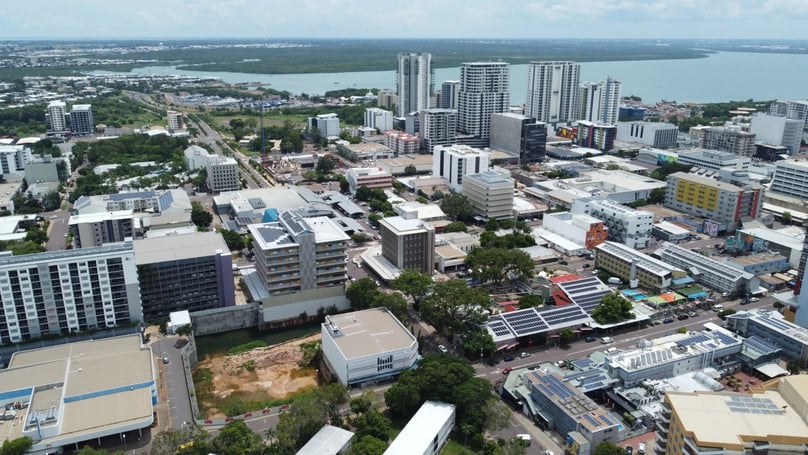
Darwin, capital of the Northern Territory. Photo courtesy of Getty Images.
Economic environment
The structure of the Northern Territory economy is very different to the national economy, reflecting the relative impact that major projects can have on small communities. It is undergoing a transition from the levels of private investment which have driven the Northern Territory in recent times, to broader, export-driven economic growth.
This has led to the expansion of many economic sectors, especially through INPEX Corporation's recent $37 billion Ichthys LNG project, which is estimated to contribute an additional $5 billion to the Northern Territory’s annual investment.
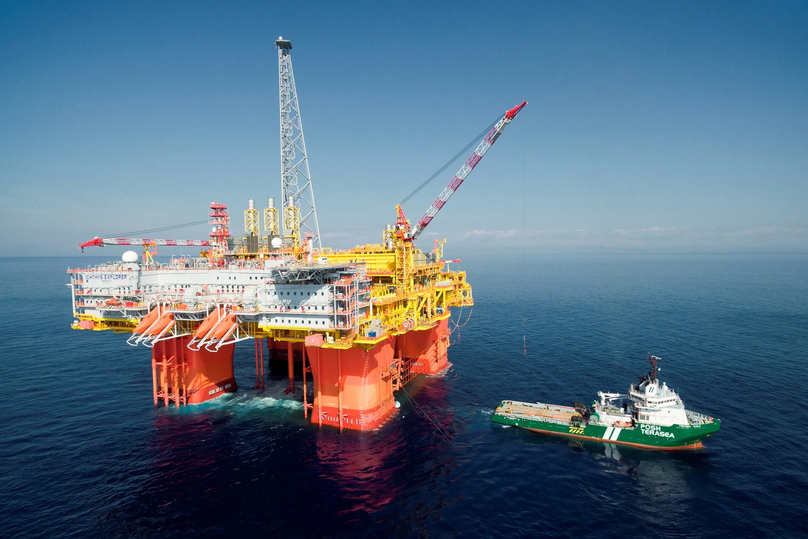
The $37 billion Ichthys LNG project implemented by INPEX Corporation. Photo courtesy of INPEX
This scale of investment is being balanced by smaller projects. This creates a major challenge for infrastructure, employment and population growth that cannot be addressed through government investment.
The Northern Territory has a strong portfolio with many private projects which can help boost the economy. Its strengths in energy and minerals, tourism, agriculture, defence, and emerging industries such as tropical health research, international education, environmental services and innovative technology will provide many opportunities for long-term economic growth.
The Northern Australia Infrastructure Fund (NAIF) is a $5 billion loan fund established by the Australian government to support economic infrastructure, industry expansion and long-term population growth for the northern region of the country.
Projects will need to demonstrate public benefit and the need for NAIF funding, involving building or enhancing economic infrastructure with the strategic participation of Aboriginal people, and prove their ability to pay back loans.
The NAIF will consider a variety of infrastructure projects in the fields of airports, communications, energy, ports, railway, and irrigation. Although it prioritizes loans larger than $50 million, smaller projects will still be considered.
Territory-wide Logistics Master Plan
Efficient movement of goods is a key component of the Northern Territory economy, better serving communities in remote areas and enhancing the attractiveness of investment destinations. To operate effectively, the Northern Territory's logistics network has been well planned, with adaptive infrastructure and appropriate regulations.
The purpose of the Territory-wide Logistics Master Plan is to create favorable conditions to improve logistics and transport connectivity, meeting the domestic and international trade needs of the Northern Territory.
To achieve the vision of a safe, efficient and reliable logistics and transport network that drives the socio-economic future of the Northern Territory, the government and the private sector must work together to carry out actions in priority areas.
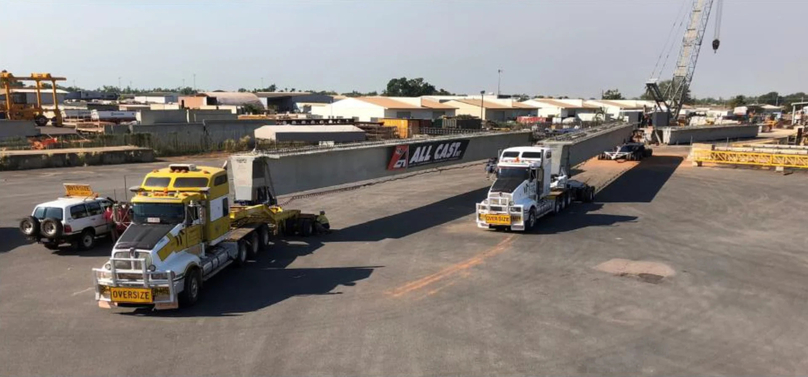
The Northern Territory's logistics network has been well planned, with adaptive infrastructure and appropriate regulation.
Identifying policy drivers unlocking the full potential of the territory will boost Australia's prosperity - increasing trade and employment opportunities to maintain Australia’s position among the top world economies.
The northern region is a development priority of Australia, and the Northern Territory is at the heart of this national agenda - with a key initiative to drive growth, including air, land and sea transport connectivity.
This plan serves as a foundation to guide the government's future priorities (investment, policy and legality). The government and industries must work together to ensure that transport and logistics networks operate safely, efficiently and reliably.
The plan is aligned with the Northern Territory Regional Development Framework and the 10-year infrastructure strategy built on consultations through the recently published planning discussion documents.
In terms of imports and exports, the Northern Territory Regional Development Framework identifies key growth sectors within the Northern Territory. Industries whose growth relies heavily on transportation and logistics networks include agriculture, fisheries and aquaculture; energy and minerals; defense and supporting industries; tourism and community.
Energy, agribusiness and defense are expected to see growth in the future, while the tourism sector is primarily based on passenger movement and time-sensitive shipment support.
The Northern Territory’s businesses and consumers depend heavily on efficiency in the transport of general goods, including construction materials, wholesale and retail distribution. The more efficiently the supply chain operates through well-planned services and infrastructure, the lower the cost of living for locals and the more opportunities there will be for successful growth.
The Australian government has worked with state and territory governments to develop a National Freight and Supply Chain Strategy, setting an agenda for cooperation and integration in freight transport over the next 20 years.
The coordinated national strategy and action plan were agreed by state governments at a meeting in August 2019. Based on that, a logistics plan has been made to realize the national strategy.
Infrastructure focuses
The Northern Territory government is committed to continuing to provide sustainable services at a high level over the long term. The territory’s plan for generational transition includes investing in children; remote housing, education-health and police resources, and amendment of the justice system for young people.
With the declining construction activity of the private sector, the Northern Territory government has proactively provided support through infrastructure programs, procurement policy reforms and target stimulus programs.
Remote housing
As part of a key plan to create jobs and enhance community safety, remote housing is a foundation for generational transition.
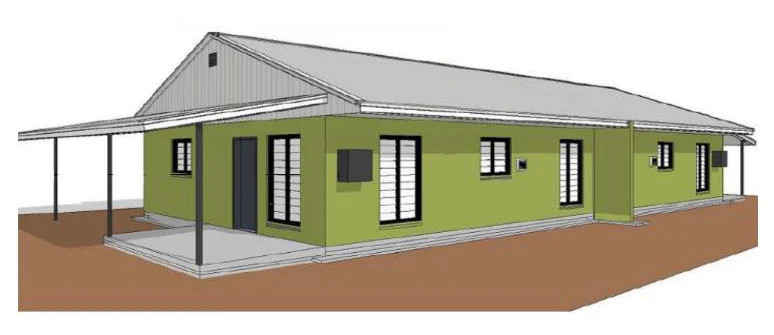
The Northern Territory government has committed a budget of $1.1 billion over 10 years for remote housing, with $550 million from the federal government. This is an expansion of construction and investment activities across regional and remote areas of the territory, providing opportunities to improve output and economic growth for the bush region.
Investment in remote housing will attract commitments through the Local Decision Making initiative. This investment will create opportunities to support local economic development, build capacity for Aboriginal businesses, and train and create jobs for Aboriginal people.
Tourism
Tourism is an important part of the Northern Territory's economy, supporting thousands of small and medium-sized enterprises.
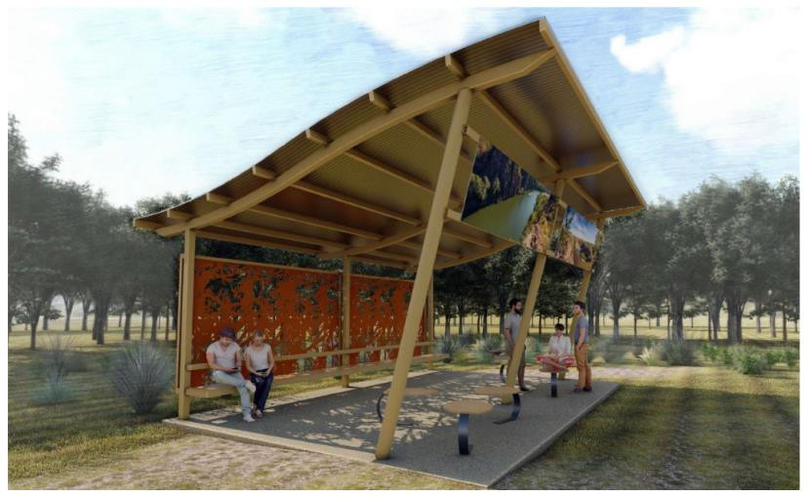
As part of the $103 million tourism stimulus program, the Northern Territory government is developing long-term sector strategies to enhance and consolidate the actions being taken.
The Northern Territory's government continues to support tourism initiatives to increase private investment, attract visitors and create jobs for locals. In May 2019, a $62.8 million tourism initiative support program called Turbo2 was announced.
Transport and logistics
The Northern Territory government continues to focus on integrating community and land development needs with these sectors' best practice to ensure the logistics and passenger transport networks are connected across the territory from urban areas to regional centers, mining areas, and remote Aboriginal communities.
Strategic transportation planning will ensure the safe, reliable and effective operation of the logistics network to address the current and future needs of people and resources for key industries, tourism, livestock farming, energy, and agriculture.
The dry dock at East Arm will be the largest ship lifting facility in the Northern Territory. This will be a catalyst for the development of the territory’s marine maintenance and services industry.
Urban public housing
The Northern Territory's government provides a wide range of urban public housing options in major centers across the territory. There are many sizes and types, depending on purposes, with adjustments to fit people with disabilities.
The Northern Territory's government is also building a $45 million redevelopment area at John Stokes Square in Nightcliff, including 76 new units and two-bedroom public houses for older people and those living with disabled people, a 24-hour police station, and a campus with an open space directly connecting Nightcliff village and Nightcliff shopping center.
Public safety and legality
The Northern Territory's government continues to provide infrastructure, focusing on supporting police and emergency services, tackling anti-social behavior and alcohol supply violations, and supporting children and young people at risk through the youth justice system.
Education
Investing in education infrastructure is not just an investment in the economy and people but also an investment in the future of the Northern Territory. Quality infrastructure contributes to quality learning and the government will continue to invest in projects that support the needs and outcomes of education and training.
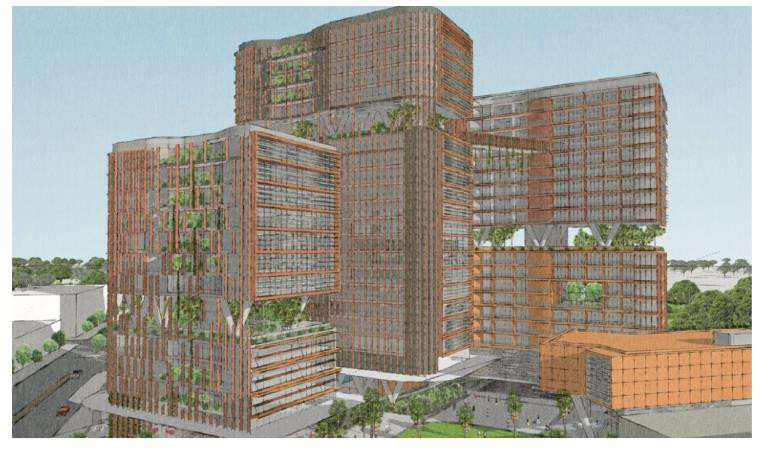
International education ranks 8th among the Northern Territory’s exports and Australia is considered the third leading educational destination in the world.
The Charles Darwin University is partnering with the governments of Australia and the Northern Territory, as well as with Darwin city, to launch a new training facility at the Darwin Center for local, national and international students. This will be the centerpiece of a new civic and educational hub.
Defense and supporting industries
The Northern Territory's government recognizes that defense will have a significant role in the territory, which is expected to provide $18.5 billion for defense in the Northern Territory over the next 20 years.
Potential investment areas
Agriculture
The Northern Territory boasts all fields of agricultural production: livestock, farming, forestries, fisheries, herbal medicine, and food.
Agricultural supporting industries supply agricultural chemicals, agricultural machinery, fences, irrigation equipment and seeds. They also provide services such as research, breeding, processing, packaging, and distribution.
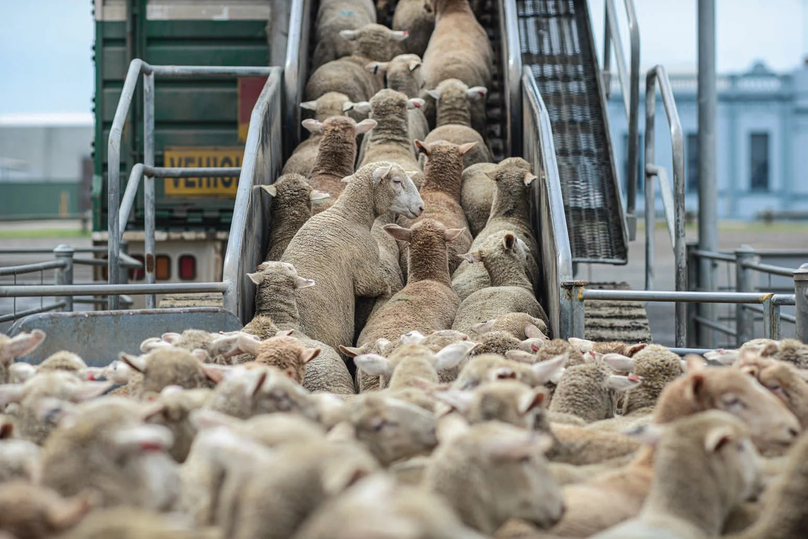
Sheep are taken to a truck for sale at the market. Photo courtesy of Jo-Anne McArthur.
The Northern Territory is taking concrete actions to improve agricultural supply chains, strengthen the resilience of the agricultural workforce, and support agricultural operators to embrace new technology.
Tourism
Tourism creates jobs and makes a major contribution to the Northern Territory economy, with the ability to provide many unique cultural and natural experience products for domestic and international visitors.
Tourism is a highly competitive industry and increased visitor number and spending will require careful consideration of how the Northern Territory will compete with other destinations within Australia and globally.
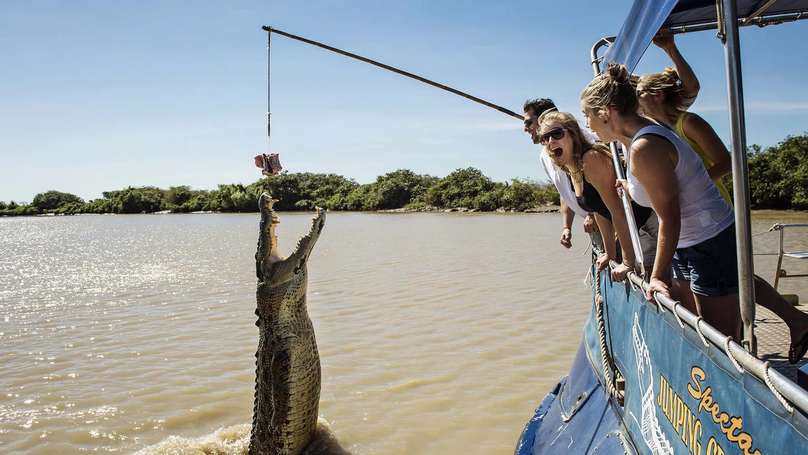
Tourists experience a boat tour to watch crocodiles jumping on the Adelaide River, the Northern Territory. Photo courtersy of Shaana McNaught.
For tourism growth, the Northern Territory government and the tourism industry are in need of investment to improve existing products, while identifying, developing and encouraging opportunities for tourism infrastructure and products that meet visitors' expectations.
The key factors of tourism impacting the Northern Territory economy are the number of visitors, their stay times and spending, and profits earned by the territory through tour operators.
Energy and minerals
The Northern Territory has significant onshore and offshore energy reserves, and is a long-standing historical supplier of oil, gas and uranium to the global market. The territory can contribute to improving energy security for the country and the world.
The Northern Territory’s ore-rich economic potential is fundamental. World-class mineral projects contribute significantly to its economic growth and its government continues to invest in exploration of reserves and dissemination of geographical information to attract investment in mining and support project kickstarts.
International education and training
The Northern Territory’s international education and training industry, despite being relatively small, has huge growth potential. International students come to the Northern Territory to study in high schools, vocational schools, colleges and universities as well as learn English and pursue post-graduate education. Global competition is quite high, so the territory needs to develop and maintain its unique values.
To increase the number of international students, the Northern Territory's government has been working with educational institutions, businesses and multicultural organizations to upgrade the quality of training and student experience. There are many opportunities to attract students seeking higher education and groups engaging in study tours as well as provide work experience opportunities for students.
International education, research and training are also important in establishing and nurturing diplomatic, trade and investment relationships in the territory.
International students will help strengthen cultural and socio-economic cooperation, bringing the world to the Northern Territory. They contribute to enriching economic, social and cultural identities. Those who stay in the Northern Territory to work after graduating will contribute to diversifying and adding skills to the local workforce.
Defense industry
The defense industry and its supporting industries include many different types of businesses, mainly small and medium-sized enterprises, focusing on technology and engineering.

The supporting industries in this field include marine supply, heavy engineering, electrical and control systems, maintenance, repairs, and logistics networks. They help save costs for defense and border forces as they allow local maintenance and repairs and the supply of local products.
Darwin is the right place to support military, national security and humanitarian activities in the northern and northwestern regions of Australia. It is also in the Northern Territory’s interests to maintain a strong and stable military presence.
Darwin is rapidly emerging as a go-to place for port maintenance for defense and border guard forces, as well as offshore oil and gas and the maritime industries.
Northern Territory investment cooperation seminar follows upgrade in Vietnam-Australia relations
In the immediate aftermath of the recent upgrade in Vietnam-Australia ties, The Investor and the Vietnam-Northern Territory Business Council (NTVBC) will organize a seminar in Hanoi this Thursday.
The 2024 Seminar on Vietnam-Northern Territory Investment Cooperation will be held under the auspices of the Vietnam’s Association of Foreign-Invested Enterprises (VAFIE).
The seminar follows the upgrading of Vietnam-Australia relations to that of a Comprehensive Strategic Partnership during a visit to Austrialia earlier this month by Vietnamese Prime Minister Pham Minh Chinh.




